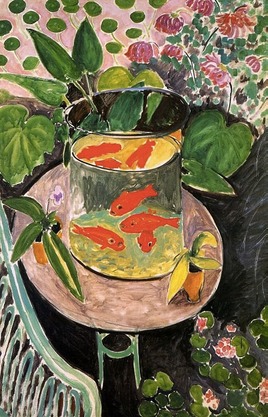I’ve just finished Michael Ondaatje’s latest, The Cat’s Table. I didn’t get the ecstatic high from this novel that I did from The English Patient. His new one is too easy to put down and walk away from, not even a novel, really, so much as a collection of vignettes clustered around a character/narrator in whom I never really invested.
But look on the bright side—I’ve stumbled on something that feels like a perfect blog topic, something that stopped me in my tracks. Here’s what I found on page 208:
Recently I sat in on a master class given by the filmmaker Luc Dardenne. He spoke of how viewers of his films should not assume they understood everything about the characters. As members of an audience we should never feel ourselves wiser than they; we do not have more knowledge than the characters have about themselves. We should not feel assured or certain about their motives, or lookdown on them. I believe this. I recognize this as a first principle of art, although I have the suspicion that many would not.
Recently I sat in on a master class given by the filmmaker Luc Dardenne. He spoke of how viewers of his films should not assume they understood everything about the characters. As members of an audience we should never feel ourselves wiser than they; we do not have more knowledge than the characters have about themselves. We should not feel assured or certain about their motives, or lookdown on them. I believe this. I recognize this as a first principle of art, although I have the suspicion that many would not.
I had to read this passage twice when I stumbled across it, slipped in almost off-handedly, near the end of the book, where the narrator speaks to us as an adult, years after his experience at the eponymous dining table of ne’er do wells aboard a ship from Ceylon to England. Even now, when I read it, I feel my writerly hackles rise. (I’m not sure where my hackles are, exactly, but I know they’re stiff with indignation.) I am not so naïve as to assume what I’ve quoted is necessarily Ondaatje’s position, rather than the narrator’s, but there’s nothing in his rambling, uncertain novel to suggest it isn’t, either. In any case, the philosophy here is surely the one that governs the work of the real-life film director/ writer/teacher mentioned in this paragraph. But to take the democratic impulse that sparked the Dardenne brothers’ early documentary films about working class life in Belgium, and elevate it to a “first principle of art,” feels like a mistake, whether Ondaatje’s or his character’s.
By proposing as a moral and aesthetic mandate that readers should not have the upper hand, but should remain as mystified as our characters, as uncertain and ill at ease in the world –no wiser, no more confident than when they opened the book, Ondaatje’s narrator dismisses most of what I’ve always felt, written and taught about “empowering the reader.” His injunction also flies in the face of how powerful and moving I find many stories in which the author has deliberately contrived that the reader know more than the characters. This is especially the case with “unreliable narrators” like the butler, Stevens, in Ishiguro’s brilliant novel, Remains of the Day; or with omniscient narrators and multiple view points in the great novels of the 19th century—it’s because we watch Jane Austen’s characters part and come together in kaleidoscopic patterns only we are aware of, that we can see them as tender, flawed. It’s because we know more than Thomas Hardy’s Tess that we love her. An empowered reader, it seems to me, is the basis of much fine literature, just as a privileged observer (who sees, for instance, an echo of the playful dance and eyes of Matisse’s “Goldfish” in the nodding heads of the flowers above them) is the basis of much great art.

Does this broader perspective, this “advantage,” make us feel scornful of characters, as Ondaatje suggests? Do we feel smug because we know what their future holds? Or how their past is shaping them? No more, I think, than the author who wrote them into being looks down on or dismisses them. No more than the artist scorns goldfish or lilies when he paints them to say something about the world.
The English Patient ranks as one of the most emotionally excruciating novels I’ve read. A large part of its profound effect, I think, can be attributed to the way in which Ondaatje makes us privy to the feelings of all five major characters. (In The Cat’s Table, he essentially limits us to the perspective of his narrator.) Unlike these characters, then, we can weave a tapestry from all their individual sensitivities and passions, making something deeper, more profound than any of them could forge on their own. Playing God this way doesn’t make writers or readers smaller of heart, but larger. By knowing more than our cherished characters, we can be both a tender mother bird with her wing around the world, and her nestling snuggled into the warm feathers of creation.
When he pairs empowerment with condescension in the passage above, Ondaatje sets up a straw man, and begs the important issue of a reader’s relationship to the fictional world, a relationship I don’t think has to mirror her relationship to the real one. I’m a reader, you see, who’s frustrated by a lack of resolution, by an aimless story that, like a painting which resolutely and faithfully portrays every pore and hair follicle with photographic fidelity, gives us a “slice of life,” not its juice. I don’t confuse reality with fiction. And I don’t want to: while our chaotic existence may inspire paintings or books, their art is born from the courage to give it meaning and grace.